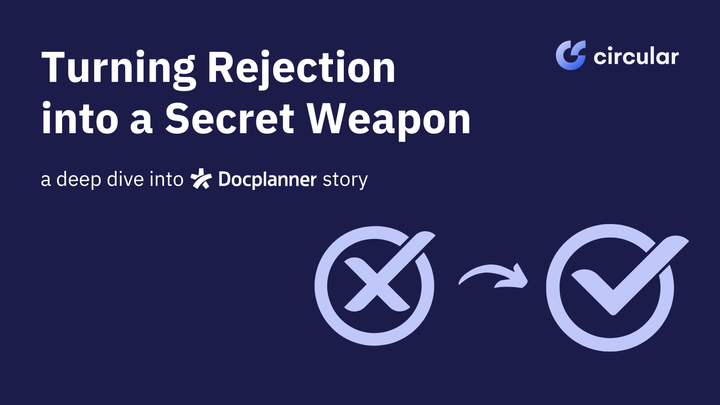Mastering Pay Equity: How to prepare for the EU Pay Transparency Directive

In our latest HR Power Session, we delved into the crucial topic of pay equity, a subject gaining significant traction across Europe recently. We were thrilled to have Virgile Raingeard, Founder and CEO of Figures, to share his expert insights.

The Rising Importance of Pay Equity and Transparency
The landscape of HR and compensation is rapidly evolving, with a growing emphasis on transparency and the gender pay gap. The EU Pay Transparency Directive, introduced this year, is a testament to this shift, mandating increased openness about pay scales and the rationale behind compensation decisions.
The Essence of Pay Equity
Pay equity is not just about gender; it encompasses internal and external equity. Internal equity refers to how an individual's pay compares to their peers within the same organisation. In contrast, external equity looks at how compensation stacks up against the market rate for similar roles.
The EU Pay Transparency Directive: A Game-Changer
The EU Pay Transparency Directive was approved by the EU Parliament on 30 March 2023 and adopted by the EU Council on 24 April 2023. Before the implementation of the directive, every EU nation had individual positions and rules regarding pay transparency. This directive aims to establish a uniform standard throughout the European Union, yet member countries will retain a degree of leeway in applying the directive. Local governments have up to 3 years to take elements of this directive and implement it into local law.
Virgile shared an overview of what the new directive involves:
- Prohibition of Salary History Inquiries: Companies can no longer ask candidates about their current compensation, a move aimed at preventing the perpetuation of pay inequalities.
- Mandatory Disclosure of Salary Ranges: Employers must include salary ranges in job advertisements, fostering a culture of transparency right from the recruitment stage.
- Annual Publication of Gender Pay Gap Data: Organisations with over 100 employees must publicly report their gender pay gaps and, if significant (above 5%) devise action plans to address them which also need to be publicly displayed.
- Right to Pay Information: Employees can request information annually from their employers on how their pay compares to peers in similar roles. Companies will have 2 months to reply in written form. In cases of pay discrimination lawsuits, the onus is on employers to prove that their pay decisions are non-discriminatory.
- Internal Transparency on Compensation Criteria: Companies must openly communicate to employees the criteria for determining pay, from initial salary offers to promotions.
Which companies will be affected?
In essence, this will affect all companies. However, we are seeing tech companies taking a proactive stance. Companies such as Airbnb and Microsoft have already implemented transparent salaries in America and will look to implement in the EU. As other companies in the industry follow suit, we will see that showcasing transparent salary ranges becomes the norm and companies will proactively start doing this before the law is enforced.
💼 Check out our open tech jobs.
Preparing for a Transparent Future
Virgile emphasises that the path to pay transparency starts internally. Companies should conduct pay equity audits, involve leadership in the process, train managers, and communicate with employees internally before making external commitments. It is also important to note, that preparation involved significant change management and involvement of various teams, so it's important to begin this with time.
Here are some tips to get started, including some questions you can begin to ask yourself and the team.
- Conduct a pay equity audit of the company salary structure
- Do you have a gender pay gap?
- Do you currently display salary ranges?
- Who's salary is above or below these salary ranges?
- Identify where you could have issues if this information became public next week.
- Involve Leadership
- Ensure that the leadership team is aware of the Pay Transparency Directive and what's coming and get them onboard.
- It could require involving other teams/ Leaders to conduct an audit across the company.
- Communicate and train managers on salary ranges.
- Communication to employees
- Before communicating anything externally, it is imperitive that employees are fully aware of their salary range.
- How do we ensure every employee is informed about their salary range?
- Public share Salary ranges on job ads
- Once you have conducted the audits, have the Leadership team onboard, Managers are informed and trained and the entire workforce is also informed, you are ready to communicate externally.
Conclusion
As we wrap up this enlightening session with Virgile, it's clear that pay equity is more than a compliance issue; it's a strategic imperative that requires immediate attention. Companies should be aware that implementing this requires planning, auditing, training and communication and so it cannot be left to the last minute. By embracing transparency and equity in compensation, organisations not only adhere to emerging legal requirements but also position themselves as employers of choice in an increasingly competitive talent market.
Stay tuned for our upcoming HR Power Sessions, including discussing Practical Measures for a Gender-Balanced Tech Sector and further exploration of the gender pay gap. Let's continue to foster a fair and transparent HR landscape together.
If you're interested in getting more expert tips, join the Circular Community to stay up to date with up coming events!




